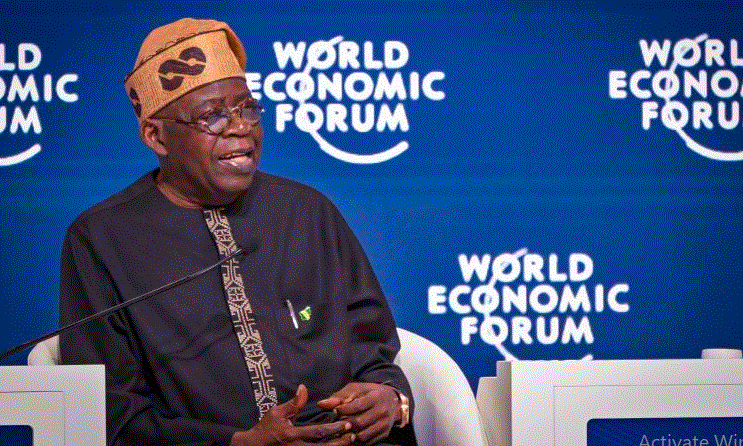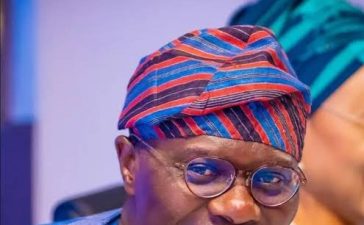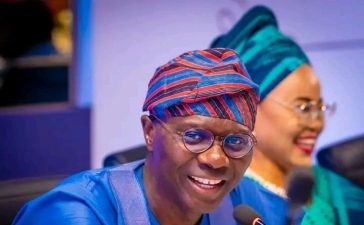President Bola Tinubu says collaboration and inclusiveness are invaluable to achieving global food security, addressing collective challenges, and driving innovation across a chain of interests for a more stable and prosperous world.
Speaking during a high-level panel session at the World Economic Forum Special Meeting on Global Collaboration, Growth and Energy for Development in Riyadh, Saudi Arabia, on Sunday, President Tinubu said “collaboration and inclusiveness”, especially with regard to Africa, are elemental to building a future of hope, peace, and progress for all.
He said capital mobilization, which is needed to spur economic growth and associated advancements in Africa, cannot be overlooked any longer.
The President posited that the continent is richly endowed but that the diversity of its resources must reflect in its wherewithal and economic realities.
“The capital formation that is necessary to drive the economy, agriculture, ensure food security, innovation, and technological advancement must be an inclusive programme of the entire world. No one should be left behind.
“I am glad the world is recognizing the need for cooperation, and that with the type of population growth that Africa is experiencing; the diversity of its resources must be married with economic opportunity. We must collaborate to achieve that,” President Tinubu said.
The President called on global leaders to pay attention to the developments in the Sahel, emphasizing the need for a studied understanding of the vectors of the current situation, while suggesting collaboration in the pursuit of enduring solutions.
“We are encouraging the entire world to pay attention to the Sahel and the other countries around us. As the Chairman of ECOWAS Authority of Heads of State and Government, I have wielded the big influence of Nigeria to discourage all unconstitutional change of government. Equally, we have eased the sanctions. We need to trade with one another; not fight each other. It is very necessary and compulsory for us to engender growth, stability, and economic prosperity for our people in West Africa.
“The rest of the world needs to look at the fundamentals of the problem; not just geopolitically, but at the root. Has the world paid attention to the poverty level in the Sahel and the rest of ECOWAS? Have they facilitated the infusion of capital and paid adequate attention to ensuring the exploitation of resources and the creation of opportunities presented by the mineral resources available?
“Are we going to play a big-brother role in a talkshop without taking necessary action? We just have to be involved in the promotion and prosperity of that region in order to see peace, stability, and economic growth,” President Tinubu said.
Detailing the steps taken to set Nigeria’s economy on the path of expeditious recovery, the President said he had to take tough but essential decisions like removing fuel subsidy – with its attendant perils – and managing the nation’s currency, effectively removing corruption-laden arbitrage.
“Concerning the question of subsidy removal, there is no doubt that it was a necessary action for my country not to go bankrupt and to reset the economy and the pathway to growth. It was going to be difficult, but the hallmark of leadership is making difficult decisions when they need to be made.
“That was necessary for the country. Yes, there have been drawbacks. Yes, there was the expectation that the difficulty would be felt by a greater number of people. But, of course, it was the interest of our people that was the primary focus of the government. Along the line, there was an arrangement to cushion the effect of the subsidy removal on the vulnerable population of the country. We shared the pain across the board. We cannot, but include those who are very vulnerable.
“Luckily, we have a very vibrant youth population interested in innovation and highly ready to leverage technology, good education, and who remain committed to growth. We were able to manage that and partition the economic drawback and the fallout of the subsidy removal equally; engendering transparency, accountability, and fiscal discipline for the country. And that, to me, is most important, which is focusing on what direction we should head in. I will pursue that rigorously.
“The currency management was necessary, equally to remove the artificial element of value in our currency. Hence, our local currency finds its level and competes with the rest of the world’s currencies as we remove corrupt arbitrage and opaqueness. That, we did. At the same time, that is a two-engine problem in a very turbulent situation for the government. But we are able to manage that turbulence because we prepared for this with inclusivity in governance and rapid communication with the public,” the President concluded.
In her remarks, Managing Director of the International Monetary Fund (IMF), Kristalina Georgieva commended President Tinubu for offering insights on how to execute strategic economic reforms.
“President Tinubu has emphasized the right things about what world leaders must consider primary in the execution of strategic economic reform. He said there is a need to ensure that reforms are accompanied by a human touch. The needs of people must be identified and catered to as governments implement tough but necessary reforms,” the IMF Managing Director said.
During the session, the President of Rwanda, Paul Kagame, who was also on the high-level panel, said: “I am happy that the Nigerian President spoke on the need for inclusive economic growth. Africa is the stage for an expanding middle class. As the growth of the middle class in developed economies stagnate, Africa’s middle class is growing. It is our human resources and not natural resources that make our continent strategic and central to the global community moving forward.”







